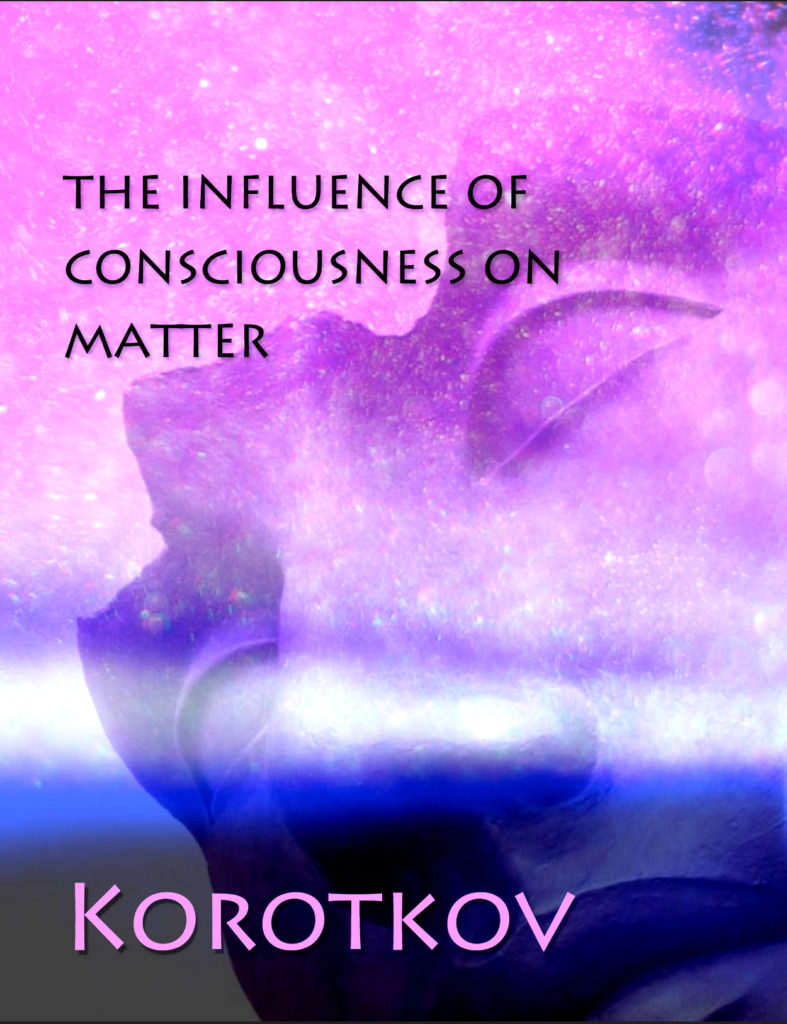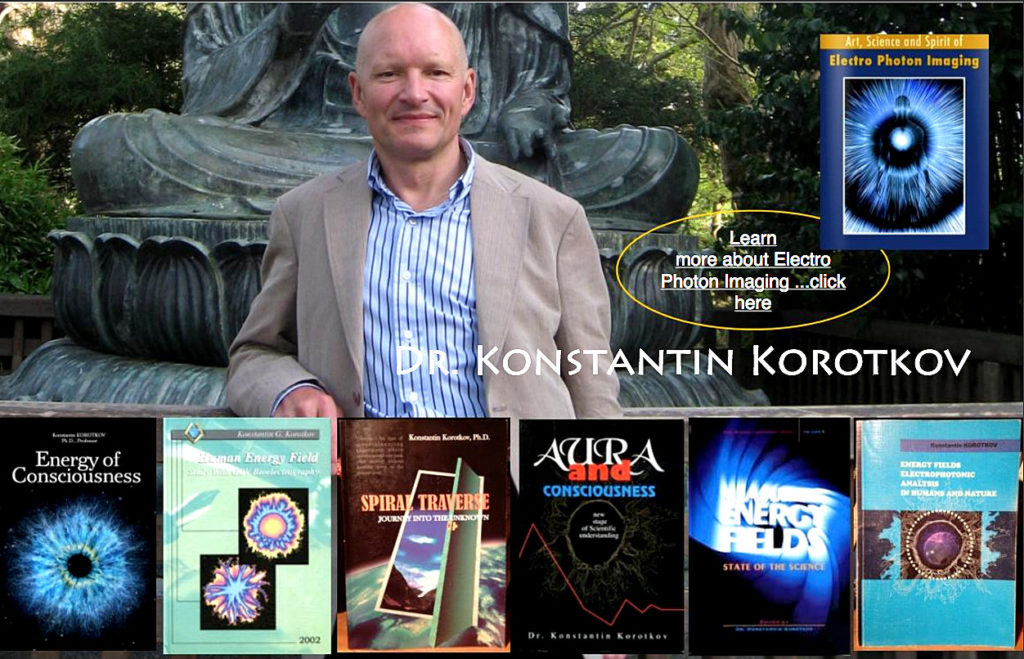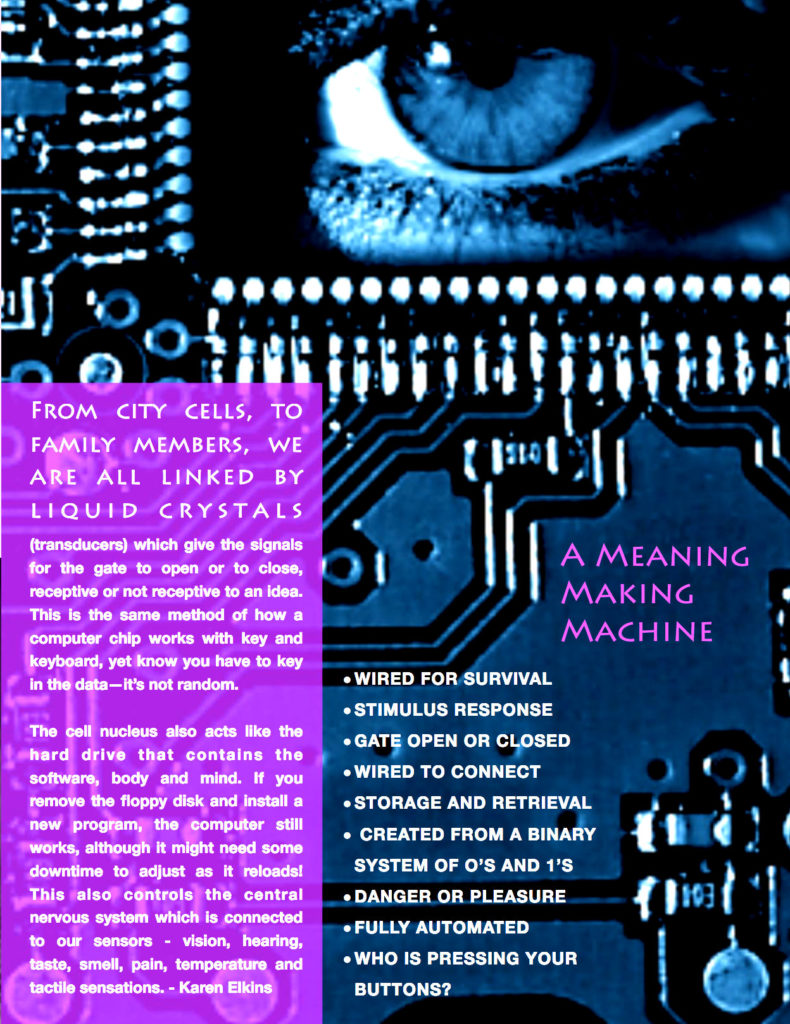The Influence of Consciousness on Matter
KOROTKOV
The question of whether the
human mind can directly,
without some intermediate
elements, influence the world
around us has troubled
mankind since ancient times.
This effect is described in countless myths,
legends and fairy tales of all peoples. In XX
century this question arose on the new
plane when the concept of the “observer” on
whose conscious actions the outcome of
subatomic events depended was introduced
in quantum mechanics. Such interpretation
is not universally accepted by physicists but
it provides a theoretical foundation for study
of these phenomena.
It is interesting to note that in techniques,
especially in computer sciences, there is a
c o m m o n o p i n i o n t h a t t h e r e a r e
experimenters in whose hands any
instrument works, and there are people
negatively affecting the equipment. The first
were Lord Kelvin, Thomas Edison and
Nikola Tesla. The latter are usually theorists.
A famous physicist George Gamow
humorously describes the so-called “Pauli
effect”7:
“It is well known that theoretical physicists
are very awkward in handling experimental
apparatus; and furthermore, the level of
physicist – theorist can be assessed by his
ability to break a delicate instrument byt
simply touching it. According to this criterion,
Wolfgang Pauli was an outstanding
theoretician; the equipment broke, fell,
blocked or burned as soon as he entered
the lab”.
Naturally, this is a joke, and such
influence is not exerted by all theorists,
but as with every joke, there is a large
element of truth there.

THE FIELD APPROACH
According to the field concept, the particles
i n v o l v e d i n a n y i n t e r a c t i o n ( e . g . ,
electromagnetic or gravitational), create at
each point of the space around them a
special state, a force field, which manifests
itself in a force effect on other particles that
are placed in some point of this space.
Indeed, according to the relativity, the
propagation velocity of any interaction
can not exceed the velocity of light in
vacuum. Therefore, in the system of
interacting particles the force acting at
this moment of time on a particle of the
system is not determined by the
arrangement of other particles at the
same moment, i.e., the change of the
position of one particle has an effect on
another particle not at once but after a
certain period of time. Thus interaction
of particles whose relative velocity is
comparable with the velocity of light
can be described only through the
fields created by them.
A group of French researchers led by R.
Peoc’h 10 carried out a series of amazing
experiences. They designed a robot that
could move around without bumping into
obstacles. If the robot is programmed to
move at random it is moving chaotically,
accidentally turning in different directions. In
the room tracking sensors are placed, and
after some time the trajectory of the robot
uniformly fills in all available space. After
that several cages with chickens are placed
into the room, and the light is turned off.
Then the robot is switched on, a small bulb
being mounted on it. The robot starts to
randomly move around the room, but after a
while it turns out that the trajectory of its
motion shifts toward the cages with the
chickens! That is, the chicks, stretching
toward the light, seem to attract the robot by
the force of their emotions!
A similar phenomenon occurs when the
robot is carried before the cage with the
newly hatched chickens. They take it for
mom, and are ready to obediently follow
him. But when the freedom of movement is
limited by the cage, they call the robot-mom
with all the passion of their chicken heart.
And the robot obeys! It responds and begins
to walk close to chicken cages. Similar
results have been repeatedly reproduced
and described in detail in the scientific
literature.
Thus, emotions affect even an electronic
machine. The question is: what is the
mechanism of this influence? I am afraid
that at this stage we are very far from the
answer. Now our task is to accumulate
experimental data and let us not hurry with
conclusions.

QUANTUM BREAKTHROUGH
As we know, the great Einstein until the end
of his life could not accept quantum
mechanics. It seemed to him a too formal
simplification of reality. He lamented, “For
fifty years Iʼve been thinking about what is a
light quantum, and can not understand it,
and now at the universities every Tom thinks
he knows it, but he is mistaken”. Einstein
could not accept the probabilistic principle
being the basis of quantum mechanics. He
did not want to lose the certainty and truth.
“God does not play dice”, he said. Einstein
called quantum mechanics absurd. He
believed that physicists simply do not yet
know the values of some hidden variables,
which would allow escaping the uncertainty.
Niels Bohr who opposed him believed that
the probabilistic nature of the predictions of
q u a n t u m m e c h a n i c s c a n n o t b e
fundamentally eliminated.

Full magazine PDF: The Influence of Consciousness on Matter
